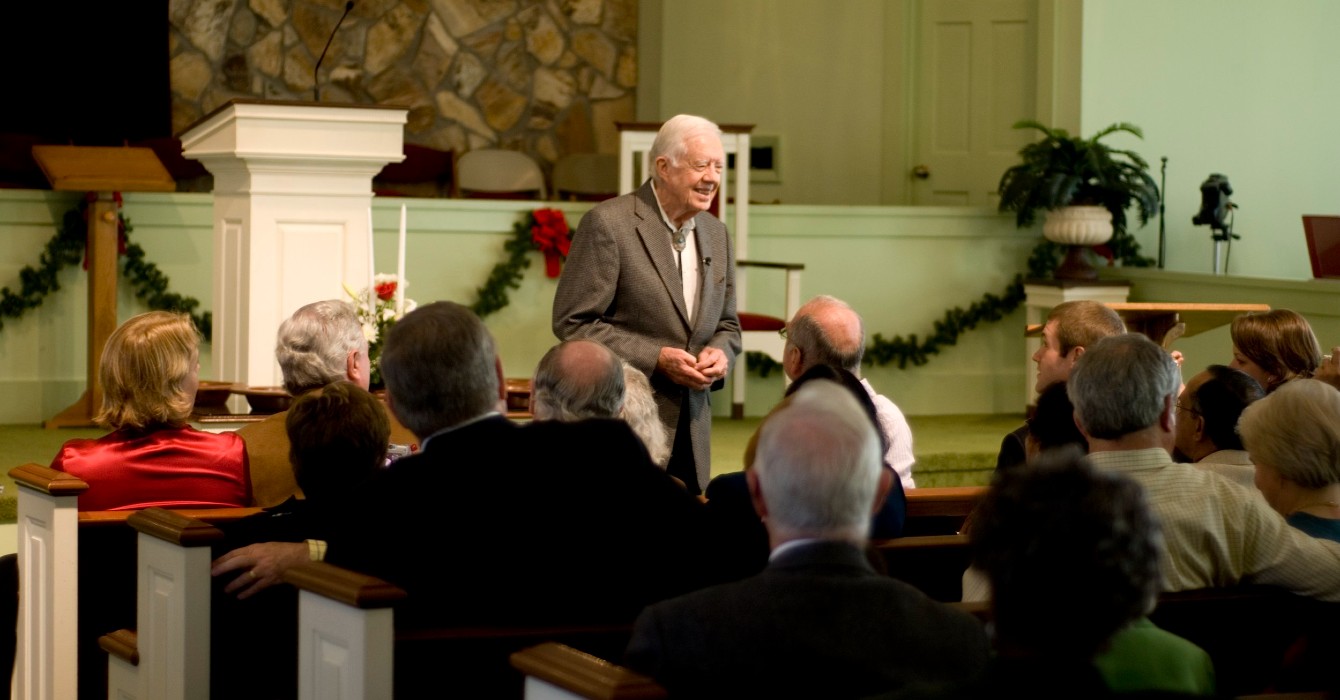If I begin a story with the words, “I was at a Sunday school class taught by a former president of the United States,” there is no need to ask, “Which one?”
While nearly every president in this country’s history has professed some form of the Christian faith, only one is known for leading this country and teaching Sunday school: President Jimmy Carter. His faith is one of the things he’s best known for — a tall order for someone who occupied the most powerful office in the world.
One of the great privileges of my life was working with Carter to establish the New Baptist Covenant. He convened this organization to advance racial justice in and through Baptist churches. It was an honor to pursue this critical mission and to have the opportunity to see Carter in action. He was a man who truly embodied his faith, which informed his leadership and his life.
From time to time, I would visit Carter’s church, Maranatha Baptist in Plains, Georgia, to attend his Sunday school class. It was always a treat to hear him, but one Sunday in particular stands out. On a cool spring morning in 2014, Carter spoke about forgiveness.
Christian talk of the importance of forgiveness is so common that it can easily lose its power. But on this day, that was not the case. Carter did not meander through truisms and sentimentality. He shared a personal story. A story that was difficult and painful for him.
In Carter’s 1980 campaign for reelection, his debate prep book was stolen and made available to the Reagan campaign.
In the Sunday school class, Carter relived what was at stake in the 1980 election. Major decisions about the fate of our country hung in the balance. Would our nation take seriously our obligation to care for creation? Would we prioritize the plight of the poor and see the dignity of all our brothers and sisters? Would we study war no more and wage peace in our world? Carter cared deeply about these issues and poured himself into the campaign. With his debate book, full of insider information, in the Reagan campaign’s hands, his opponent had gained a distinct advantage.
Reagan went on to defeat Carter in the 1980 presidential campaign. While many factors played into the election results, it’s not unreasonable to see this debate as a turning point. Reagan was widely hailed as having won the debate that night, and Carter saw the stolen debate book as a critical part of his eventual loss.
Carter could have spent the rest of his life mired in resentment, hating the person who turned over his debate book, and few people would have blamed him. Yet that day at Maranatha Baptist Church, he spoke about making a different decision. He chose to forgive. Carter said he didn’t have a magic wand that would make the anger disappear, but Scripture’s calling was clear, and he knew he must follow. “Jesus calls us to forgive,” he said.
As I listened to Carter speak about forgiveness, it struck me how simple his message was.
These words were not those of a naive man. This is the man who negotiated the Camp David Accords, bringing peace to Egypt and Israel, and established diplomatic relations with the People’s Republic of China. Carter has seen the complexities of our world and led in challenging times. Yet his message was still a simple one.
Oliver Wendell Holmes is reported to have said, “For the simplicity on this side of complexity, I wouldn’t give you a fig. But for the simplicity on the other side of complexity, for that I would give you anything I have.”
Carter’s faith is simplicity on the other side of complexity. Throughout his life, he has taken in the complexities of our world but been anchored by a simple yet profound faith — a faith in which love is inseparable from justice and human dignity is valued. He has not equivocated or used life’s complexities to justify spiritual shortcuts. His path has been challenging yet clear.
Carter’s message brings us back to simplicity on the other side of complexity. He reminds us that work can be hard but our calling is clear. In a complex world, I am grateful for President Jimmy Carter’s simple yet profound witness.
























